The views expressed in our content reflect individual perspectives and do not represent the official views of the Baha'i Faith.
In former ages art played an integral role in cultures, traditions and religion. Art permeated most every aspect of life, from ritual to everyday activities. Its place in society required neither discussion nor explanation. Written and oral traditions may not have mentioned “art”—they may not have had a word for “art”—but song, dance, painting, architecture, physical adornments and other creative forms conveyed beauty and meaning. Art took its rightful place at the center of the life of the community.
Some societies still function that way, but only a few. Unfortunately, after a number of years, often due to schisms in a culture or religion, traditions change: they become more rigid; art becomes threatening.
Regimes that wish to wield heavy control over their people—who want to order and direct their thinking and their values—restrict the types of art people can produce or practice:
Creative thought seems to threaten society since it leads to a questioning of the status quo and, thus, to demands for change. – Amiel Schotz, Theater Games and Beyond, p. 3.
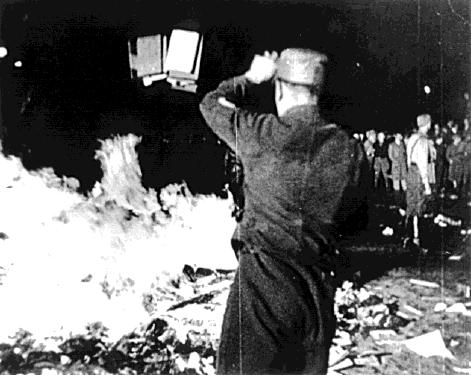
Nazi book burning in Berlin 1933
Several religious denominations forbid dancing or watching movies lest they lead to unsacred thoughts and actions. Despite attempts at intervention by various governments from around the world, the Taliban destroyed priceless ancient Buddha statues in Afghanistan because they were objects related to another faith. The Nazis burned books. Dictators require students to sing songs of praise to them and saturate their countries with their own images in posters, statues, news media—even schoolbooks, knowing that their omnipresent likeness works as a subtle form of brainwashing.
Leaders have often manipulated the arts—and artists—for propaganda purposes. During the Cultural Revolution in China, art played a major role in communicating to the masses. Artwork, music and theater were important tools in mobilizing the populace. The works of dramatist Cao Yu, who stated, “Art for art’s sake is a philosophy of the well-fed,” furthered the beliefs of the Communist party.
Art isn’t utilized that way nor is it officially repressed in American culture; rather, it has been relegated to an insignificant, commercialized place in society. Art classes, if they are offered at all in public schools, are elective. Talented youngsters who wish to pursue the arts are often advised to do so only as a hobby, but to get a “real job.”
What a sad and dreary world this would be if everyone heeded such advice. Imagine a world without Bach, Duke Ellington, Mikhail Baryshnikov, the Beatles, Lucille Ball, Diego Rivera, Steven Spielberg, Walt Disney, Monet, Stevie Wonder, Luciano Pavarotti, Walt Whitman, J.K. Rowling, or Maya Angelou. We’d have no concerts to attend, no movies to watch, no bands to play while we dance, no cartoons for the children, no great literature to read, no comedians to make us laugh, no museums in which we could be educated and inspired at the same time.
Composer, sculptor, painter, poet, prophet, sage. These are the… architects of heaven. The world is beautiful because they have lived; without them, laboring humanity would perish. – James Allen, As a Man Thinketh
How refreshing then, to find in the teachings of the Baha’i Faith, in its sacred texts, that the arts are lauded, encouraged and praised:
The purpose of learning should be the promotion of the welfare of the people, and this can be achieved through crafts. It hath been revealed and is now repeated that the true worth of artists and craftsmen should be appreciated, for they advance the affairs of mankind. Just as the foundations of religion are made firm through the Law of God, the means of livelihood depend upon those who are engaged in arts and crafts. True learning is that which is conducive to the well-being of the world, not to pride and self-conceit, or to tyranny, violence and pillage. – Baha’u’llah, in Guidance to Poets, compiled by the Research Department of the Universal House of Justice, March 13, 1988.
President John F. Kennedy understood this. In a tribute to Robert Frost, he stated,
When power leads men towards arrogance, poetry reminds him of his limitations. When power narrows the area of man’s concern, poetry reminds him of the richness and diversity of his existence. When power corrupts, poetry cleanses. For art establishes the basic human truth which must serve as the touchstone of our judgment… I see little of more importance to the future of our country and our civilization than full recognition of the place of the artist. – from remarks made at Amherst College upon receiving an honorary degree, October 26, 1963, www.jfklibrary.org
For those who feel drawn to pursue art, whether as vocation or avocation, the place for art is in any and all parts of your life. Consider the advice of Henry David Thoreau: “Go confidently in the direction of your dreams! Live the life you’ve imagined.”


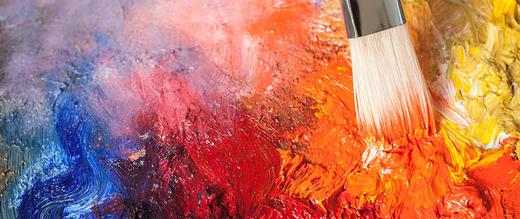


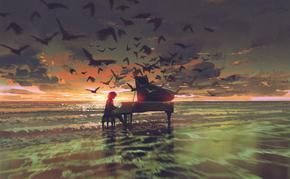
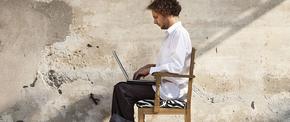







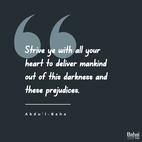
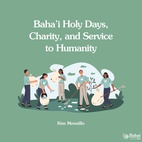

Comments
Sign in or create an account
Continue with Facebookor